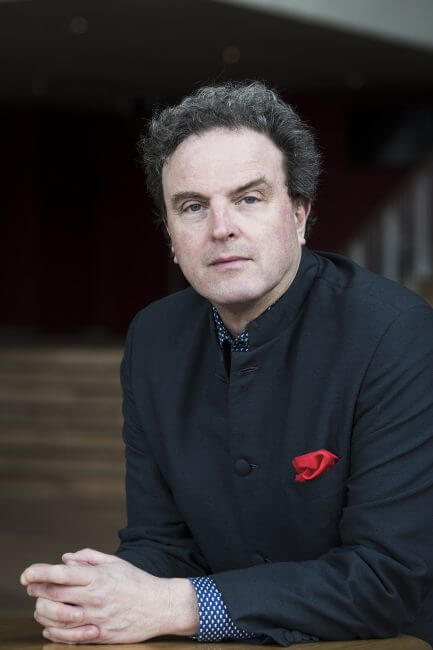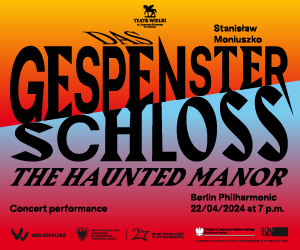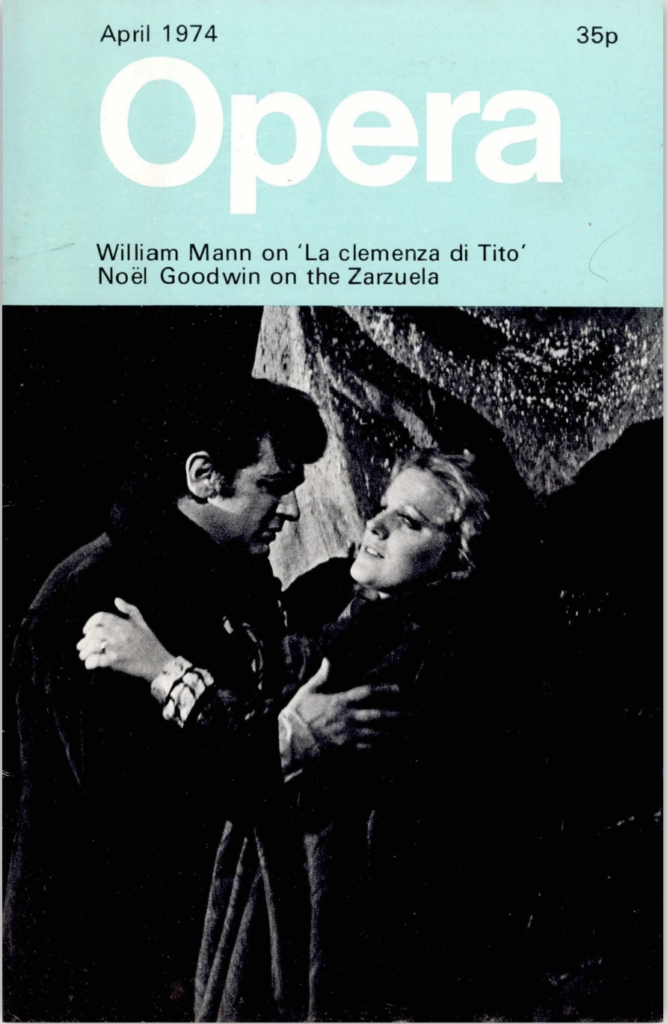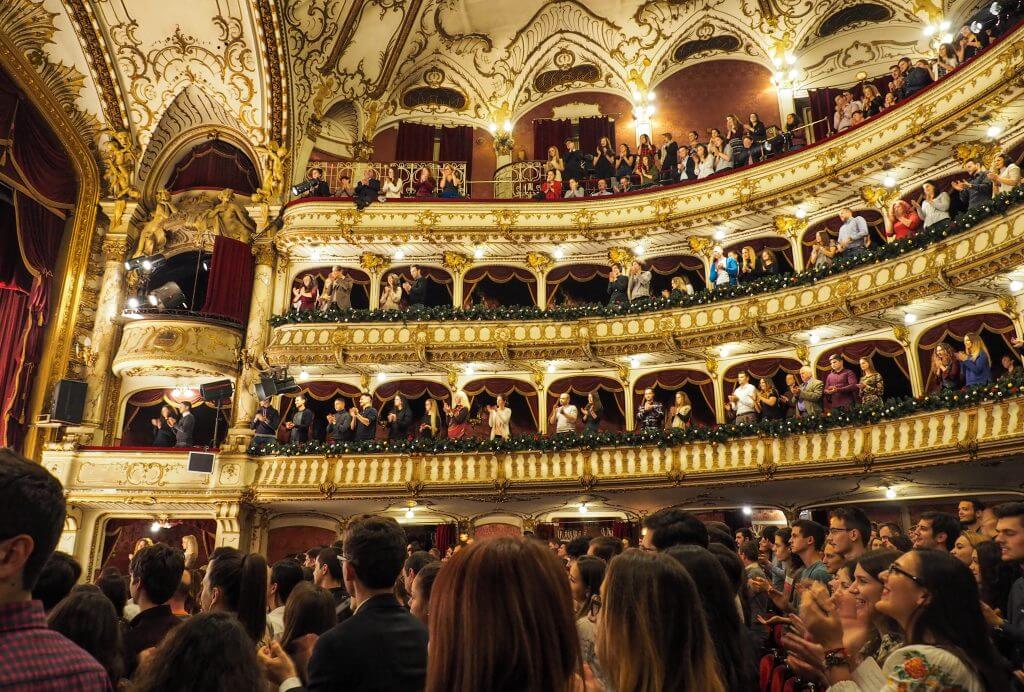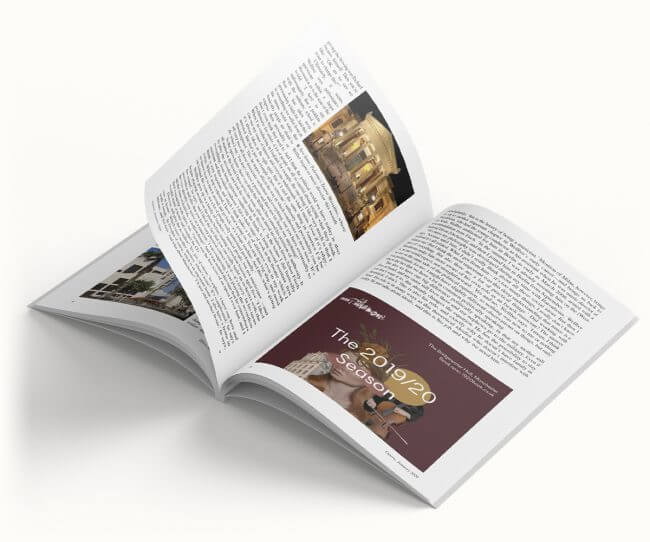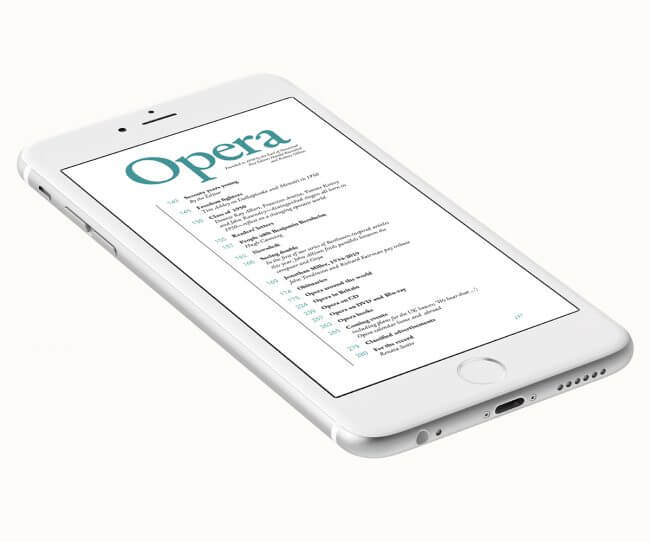Opera In The Time Of Covid
April 2020 in Articles
Michael Chance talks to John Allison
This month Michael Chance ought to have been celebrating the opening of his fourth Grange Festival. Instead, with only ten weeks to go he was forced to call off the whole thing, when in mid-March the operatic world shuttered itself down against the ravages of the Covid-19 storm. The season at The Grange in Hampshire may be compact and straightforward when compared with many others, but still the countertenor-turned-festival-director was deep in the process of unpicking things when we caught up for a socially distanced Zoom chat.
Could it be, I put it to him, that the summer festivals were better placed to deal with the crisis than the houses that run year-long seasons? They have taken one big hit but at least they know where they are. Imagine not only losing the end of the past season but not knowing whether you will be able to start again in September? At least the summer festivals can start planning for next year. ‘Yes, country house opera festivals are in a better position than most,’ says Chance. ‘We’ve taken a lot of money for tickets, we have it in the bank, and we’ll be able to use some of it to look after all our freelancing artists, to give as much help as we possibly can. Underlying all this is the absolute necessity to survive and to be in a position to offer work in the future, when things get back to normal.’ But what is ‘normal’? Though people may be determined to get things up and running again, surely it’s too early to know how confident audiences will feel crowding back into stuffy theatres?
Every organization has had to deal with the crisis in its own way, but the Grange Festival can serve as a sort of case study and I ask Chance to talk us through the timeline of the cancellation process. At what point did it even dawn on him that abandoning this year’s programme might be necessary, and was it an agonizing decision? ‘No one was really thinking about this until the end of February. But about two weeks before the situation got so serious I sent a letter to all of our company saying that although we were determined to continue if possible there was a likelihood that we might have to cancel. I really wanted to let everyone know before we went public. Many people have lost their jobs by reading about it on Twitter—and I understand, some companies are just so big that alerting people through social media is the only practical way—but we pride ourselves on having a certain personal commitment to our artists and audience. I sent our artists an email that was as personal and honest as possible and made sure that they all read it before we went public.’
The Grange Festival was among the first of the British summer events to announce its decision, which it made public on March 18. ‘Along with all the other directors of the country house operas, we’d set up a little WhatsApp group and there was some discussion as to who was to go first. We all had to wait for our board meetings to convene. But I was clear that we needed to announce something. I think that certainty and decisiveness speak well to both our performers and our audience. We’re small, of course, but we still employ a lot of people, so it was better to cancel and then plan with certainty rather than to hang on—that’s where the doubt creeps in, especially for artists. “Am I going to be performing? Are they going to pay me or are they waiting to see which way the wind blows?”’
As an artist himself, Chance must been acutely aware of what it would have felt like to be on the receiving end of such decisions. But now, as well as alerting the company, he has an equal responsibility to his patrons and there was the business of writing personally to every ticket holder. ‘Some have spent many thousands of pounds—lots of people buy 12 or 16 tickets in a group block. So one of the first financial decisions we had to make was: do we offer refunds, do we appeal to people’s charitable sense and make it possible to donate their ticket with gift aid, or do we offer to put their money on account for the next festival, hoping that with their ticket already paid for they will be able to return as soon as possible? These scenarios were the outcome of forward projections about what the funding and finance of our next festival might look like, and even being reasonably cautious we reckon that our philanthropy will drop by about 50 per cent. Membership will fall, donations will fall—all the knock-on effect of a crisis that will see people’s jobs being lost or their share portfolios tumbling, and not necessarily wanting to go into a crowded theatre so soon again. Michael Moody, our chief of operations, still has very strong memories of what happened in the 2008 financial crash, and so we have
a clear idea of where our money comes from, who it comes from, and what their likely state
of mind is going to be going forward. Unlike the bigger companies we have no access to government funding, but we’re also an outlier among the country house festivals in not offering refunds. We were fearful of the reaction, but this was the only basis on which we could plan with confidence, and I’m relieved to say we have been left in a good situation. Two thirds have donated, and the other third put money on account.’
The Grange Festival is relatively small and self-contained, and the whole process of cancelling a season can at least be controlled more neatly than in many places. But the other side of that coin is that being so dependent on donations and goodwill makes the country house set-ups especially vulnerable. ‘Our fundamental goal is not just survival but being in good enough shape to offer quality work. So many organizations are going to have to contract, if not go completely out of business. But we’ve now got a realistic working plan, which includes being able to help artists—all our singers, and everybody else—financially as much as we can over the next few months. Our freelancers number well over 150 people, and we’re offering them a package—representing a certain percentage of the original contract—and an invitation to return next year, so guaranteed work. It’s as fair as we can be. Some companies have deeper reserves for this and are offering bigger percentages, but we’re still young. At least we’re doing something, because I cannot help feeling that when everything unravels, the government assistance for freelancers is going to be much less easy to access than might be imagined. What happens if you’re, say, a 27-year-old singer, not long out of college who’s maybe done a year in our chorus, and hasn’t compiled three years’ worth of accounts?’
Chance says that although there is money in the bank, some has already been spent. ‘I mean, we’ve got three wonderful sets already sitting on the stage. We’ve got quite a lot of costumes, too. Our policy with wigmakers was if you’re halfway through a piece of work, finish it and we’ll pay you, but if you haven’t started it, hold off.’ The resident Bournemouth Symphony Orchestra has already made itself available for next year. ‘They’re losing over £300,000 worth of work this summer. They have an incredibly good and wonderful manager, Dougie Scarfe—a stunning person who immediately rang up and said, “Whatever you do, we’re behind you, we’re part of your team.” It was very moving to hear that.’
The outcome is that plans are already well advanced for essentially shifting 2020’s programme to summer 2021. ‘My original letter to the artists said that it would be nice to know well in advance if any of them were absolutely not free in the same period next year. We also had to make sure that our directors could be free, or that we could find a way of working around their commitments in summer 2021. And, of course, the directors we had been talking to about next year have had to accept that their productions will wait until 2022. But we’re small—can you imagine trying to reschedule the Vienna State Opera right now?! So the upshot is that this year’s three operas—La Cenerentola, A Midsummer Night’s Dream and Manon Lescaut—and our productions of My Fair Lady and our community opera, Jonathan Dove’s The Monster in the Maze, plus the exciting project of a Shakespeare play that we’ll be able to confirm soon, will all take place next summer.’
All this presupposes, of course, that 2021 turns out well, with everything back to normal. But how will anything ever be ‘normal’ again? ‘I don’t want to be apocalyptic, but this crisis throws into the air the whole model on which our classical music industry—especially opera—has been built. We’ve become dependent on international travel, on artists needing a big infrastructure around them. The whole industry will have to undergo a massive sea-change—it will become slimmer and more efficient, and it wouldn’t necessarily be a bad thing if some of the excesses went. But when, say, your Brünnhilde cancels, being able to fly in a replacement from New Zealand at two days’ notice, that may all be a thing of the past. In future years, this crisis may be seen as not so much a challenge as an opportunity. I’m also holding onto a couple of fundamental values, including the need people will have for good-quality live performances, of experiencing the visceral thrill, not just listening in via a computer. If anything, this need will become even greater. People will realize what they’ve been missing.’ That said, Chance plans to use digital technology to connect with his patrons this summer. ‘We’ll be streaming our performances of Agrippina, Candide and Le nozze di Figaro, to keep the feeling of some sort of shared celebration and at least to mark what should have been the staging posts of our festival.’
Putting himself in younger artists’ shoes, how would our current situation have looked to the former star countertenor if the pandemic had struck, say, 40 years ago? ‘Well, I see so many artists going through this, including my 27-year-old son, Alexander, who’s living with us during the lockdown. He’s been enjoying the beginnings of a good career as a countertenor, and at Easter should have been doing a two-week tour of the St Matthew Passion with the Freiburger Barockorchester to venues including the Berlin Philharmonie, but has now got no work until a Prom in August, and is that really going to happen? It’s not just the economic side, which is bad enough, with rent and so on to pay: the question is how do you start a career again? If you’re 35 and established you’re well placed to take up again as soon as things start to get going. But if you’re 55 or 60, I fear for you.’Chance’s own summer plans beyond The Grange are still far from clear. His annual summer academy in Tuscany, SienAgosto, is at the mercy not only of the coronavirus but also of Siena’s famous Palio horse race. ‘Everything in Siena revolves around this twice-a-year race, and our course normally follows right after the second race in mid August. But the race has been rearranged and may yet have to be moved again. And it’s not only that. Our course has always been very international, with students getting in a plane and flying halfway round the world to Italy. How can we really expect people to do that this year? We’ve just got to hope some will come this summer.’



